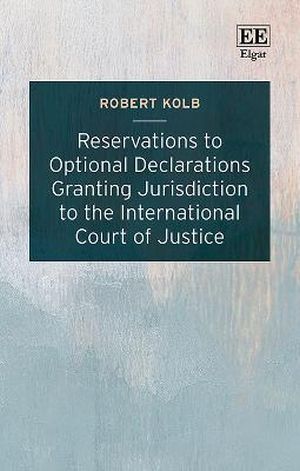
In this incisive book, Robert Kolb sets out a short but nevertheless in-depth analysis of optional declarations for the jurisdiction of the International Court of Justice, and of the various reservations which restrict the jurisdiction. Concise and readable, the book examines the true scope of this jurisdiction once the numerous carve-outs of the reservations are subtracted.
Kolb constructs a detailed exploration of the reservations involved and their effects. After an overview of the options declarations, chapters cover key topics such as reciprocity and how one should interpret the text of the many reservations. They delve into material reservations, including military and security, or reserved domain, territorial reservations and those relating to specific treaties, as well as temporal reservations and finally personal reservations.
Succinct and practical, this book is an important read for lawyers and academics concerned with international law, especially those interested in the work of the International Court of Justice. It will also appeal to students and scholars of human rights, humanitarian law and terrorism and security.